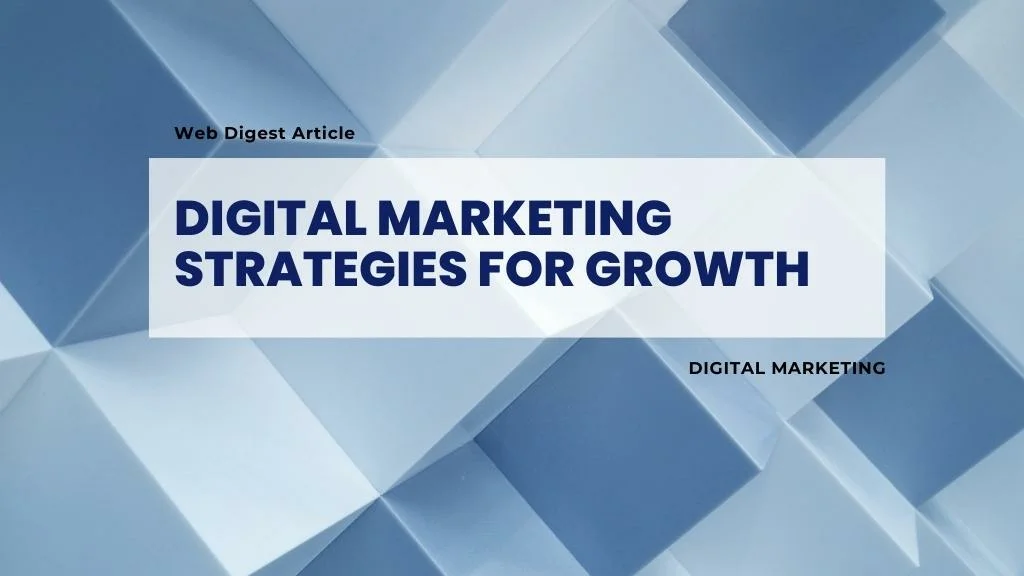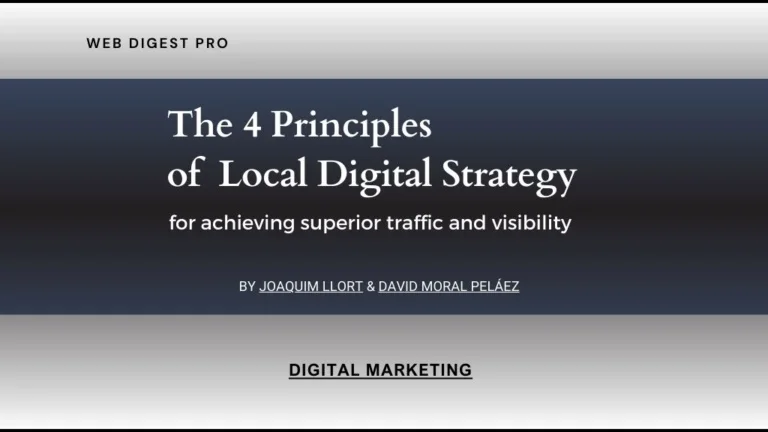Having a solid digital marketing strategy is essential for businesses aiming to succeed online. A well-defined strategy serves as the backbone of any successful digital campaign, guiding the approach to reach marketing objectives through various online channels.
This article delves into what a digital marketing strategy is, why it’s crucial, and how businesses can create one that drives significant results.
What is a Digital Marketing Strategy?
A digital marketing strategy is a comprehensive plan designed to achieve marketing goals using digital channels such as search engines, social media, email, and websites. It includes the tactics to be used, the channels to be focused on, and the metrics to measure success.
The Importance of a Digital Marketing Strategy
A well-crafted digital marketing strategy is indispensable for several reasons:
- Clear Direction: A strategy provides a roadmap that ensures all marketing efforts align with broader business goals.
- Resource Allocation: With a strategy, businesses can manage budgets, time, and resources more effectively, ensuring maximum return on investment (ROI).
- Consistent Messaging: A strategic approach ensures that messaging is consistent across all digital platforms, helping to build brand recognition and trust.
- Data-Driven Optimization: A strategy allows for the tracking of performance metrics, enabling businesses to make informed adjustments for continual improvement.
Key Components of a Digital Marketing Strategy
Several essential components contribute to a successful digital marketing strategy. Each plays a vital role in helping businesses achieve their marketing objectives.
1. Setting Strategic Goals
The foundation of any digital marketing strategy is clear, well-defined goals. These goals should be SMART—Specific, Measurable, Achievable, Relevant, and Time-bound. Common goals include increasing website traffic, generating leads, boosting online sales, enhancing brand awareness, and improving customer engagement.
2. Understanding the Target Audience
A deep understanding of the target audience is crucial for creating a strategy that resonates. This involves developing detailed buyer personas that represent ideal customers, considering factors such as demographics, psychographics, pain points, and online behavior. Building a Personal Brand for E-commerce can provide additional insights into understanding and engaging target audiences effectively.
3. Conducting Competitive Analysis
Analyzing competitors is a critical step in developing a digital marketing strategy. Tools like SEMrush and Ahrefs provide insights into competitors’ strategies, including their keywords, backlinks, and top-performing content. This analysis helps identify opportunities and gaps in the market.
4. Choosing the Right Digital Channels
Not all digital channels are suitable for every business. The choice of channels should align with the business’s goals and the preferences of its target audience. Common channels include:
- Search Engine Optimization (SEO): Enhancing visibility on search engines by optimizing website content. Learn more about The Importance of Keyphrases in SEO.
- Content Marketing: Creating valuable, relevant content to attract and engage the audience.
- Social Media Marketing: Leveraging platforms like Facebook, Instagram, LinkedIn, and Twitter to connect with the audience.
- Email Marketing: Nurturing leads and keeping customers informed through targeted email campaigns.
- Pay-Per-Click (PPC) Advertising: Driving traffic to a website through paid ads on platforms like Google Ads and social media.
- Affiliate Marketing: Utilizing affiliate platforms to expand reach through partnerships and performance-based marketing.
5. Developing a Content Strategy
Content plays a central role in digital marketing. A content strategy should outline:
- Types of Content: Such as blog posts, videos, infographics, and eBooks.
- Content Calendar: A schedule for when and where content will be published.
- SEO Optimization: Incorporating relevant keywords to improve search engine rankings.
6. Budgeting and Resource Allocation
Effective budgeting and resource allocation are crucial. Businesses should determine how much to invest in each channel and ensure they have the necessary resources, whether it be a skilled team or the right tools, to execute their strategy.
7. Monitoring and Analytics
Monitoring performance is essential for any digital marketing strategy. Tools like Google Analytics and SEMrush are used to track key metrics such as website traffic, conversion rates, and ROI. Regularly reviewing these metrics allows for data-driven adjustments to optimize the strategy.
Building a Winning Digital Marketing Strategy
Here’s a step-by-step approach to creating a digital marketing strategy that delivers results:
1. Define the Brand’s Unique Value Proposition (UVP)
The UVP is what sets a brand apart from its competitors. It should be the cornerstone of the digital marketing strategy, clearly communicating what makes the brand unique.
2. Set Measurable Goals
Businesses should establish SMART goals that align with their overall objectives and break these down into actionable steps.
3. Choose Digital Channels Wisely
Efforts should be focused on the channels that will deliver the most value based on the audience and goals. It is advisable to start with a few key channels and expand as the strategy gains traction.
4. Develop a Content Plan
A well-thought-out content plan is crucial. The content should not only be high-quality but also optimized for search engines and tailored to the audience’s needs.
5. Allocate Budget and Resources
Budget allocation should be based on the expected ROI of each channel. Ensuring that investments are made wisely will help get the most out of the strategy.
6. Implement, Monitor, and Adjust
Once the strategy is implemented, continuous monitoring is essential. Data-driven adjustments should be made to optimize performance and achieve goals.
How a Results-Oriented Digital Marketing Approach Drives Ongoing Success
A results-driven digital marketing strategy is crucial for achieving and sustaining long-term success. By setting clear goals, understanding the target audience, selecting the right channels, and continuously optimizing efforts, businesses can achieve significant, measurable results. The true value of this approach lies in its adaptability. As digital trends shift, the ability to refine and optimize strategies ensures that businesses not only keep pace but also lead in their industry. Embracing this dynamic strategy enables continuous improvement, driving long-term success and keeping a business ahead of the competition.
Sponsored Links
Written by Dimitrios S. Sfyris, founder and developer of AspectSoft, a software company specializing in innovative solutions. Follow me on LinkedIn for more insightful articles and updates on cutting-edge technologies.
Subscribe to our newsletter!













+ There are no comments
Add yours